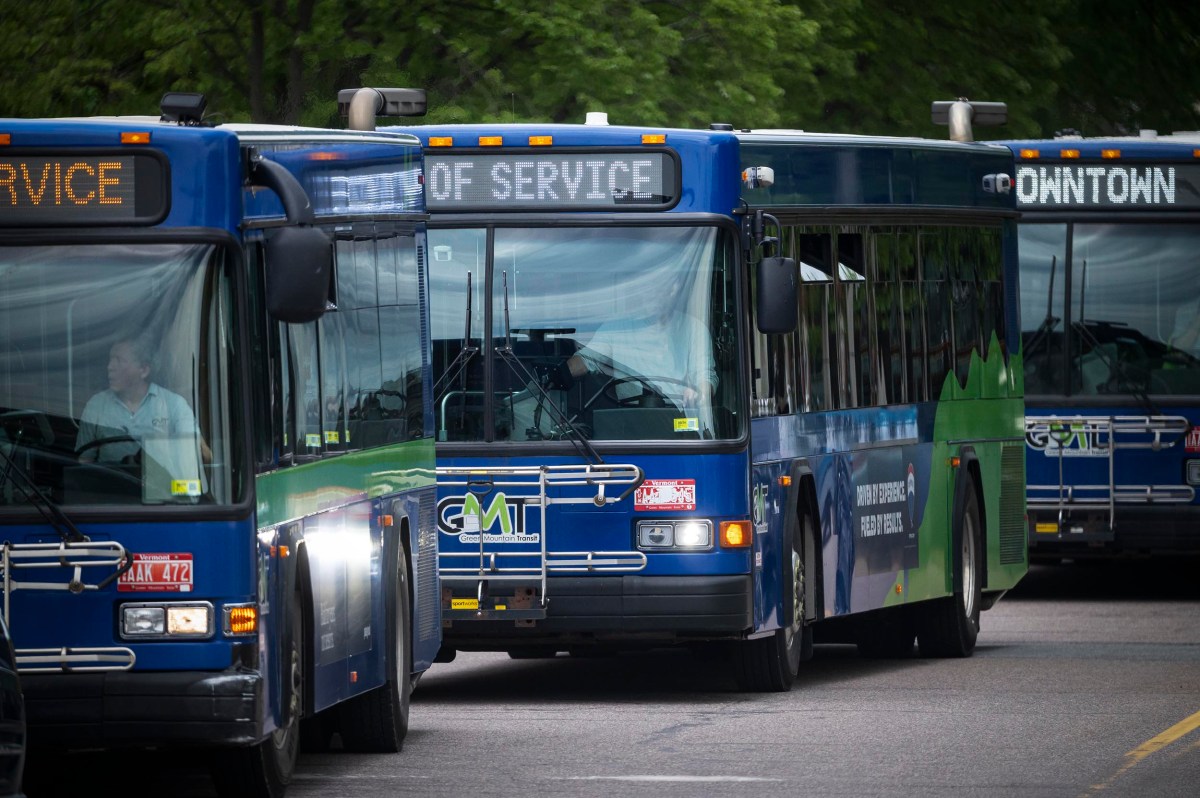
President Donald Trump’s administration on Thursday told states and other recipients of federal transportation funding that they could lose those dollars if they do not comply with the White House’s interpretation of federal laws — including on immigration.
The guidance, outlined in a letter from U.S. Department of Transportation Secretary Sean Duffy, told recipients that their obligations, by taking federal funding, included “cooperating with and not impeding U.S. Immigration and Customs Enforcement,” as well as other agencies, “in the enforcement of Federal immigration law.”
Failing to do so would “compromise the safety and security of the transportation systems supported by DOT financial assistance,” the missive states, as well as “prioritize illegal aliens over the safety and welfare of the American people.”
The four-page letter also takes aim at diversity, equity and inclusion efforts, calling them “discriminatory” and saying that states and others “must ensure that the personnel practices (including hiring, promotions, and terminations) within their organizations are merit-based and do not discriminate.”
Duffy said, without providing specifics, that there had been instances in which recipients of federal funding did not cooperate with “ICE investigations,” and that some recipients had “issued driver’s licenses to individuals present in the United States in violation of Federal immigration law,” which he suggested would be grounds for losing federal dollars.
Since 2014, Vermont has allowed people who live in the state — but who do not have lawful status or U.S. citizenship — to get “driver’s privilege” cards. It’s one of 19 states, along with Washington, D.C., that offer “driving privileges to unauthorized immigrants,” according to data compiled by the National Conference of State Legislatures.

Vermont’s largest public transportation agency, Green Mountain Transit, funds about two-thirds of its operations with federal money and received the letter from Duffy on Thursday, said Clayton Clark, the agency’s general manager. Clark said the agency is, as a result, working on new training for what its drivers and other employees should do if federal immigration agents board a bus or come to one of the agency’s transit hubs in downtown Burlington or Montpelier.
The state Agency of Transportation got the letter late Thursday, said Amy Tatko, an agency spokesperson, in an email Friday, and is in the process of reviewing it. In the state’s budget for the current fiscal year, which ends in June, federal funds make up almost 60% of transportation spending, according to the Legislature’s Joint Fiscal Office.
Joe Flynn, the transportation secretary, said in a brief emailed statement that the letter “requires further understanding,” especially about the Trump administration’s intentions, but added the state agency is “not overly concerned at this time” about what it says.
Clark said that Green Mountain Transit — which operates local and commuter bus services, as well as on-demand transit for people with certain medical needs, across Chittenden, Franklin, Grand Isle and Washington counties — would, broadly, tell its employees to comply with federal immigration enforcement officials.
“We would not want them to interfere — but we also would not want them to, you know, be aiding,” Clark said. The agency’s staff has not had any such interactions with federal immigration enforcement so far, he said in an interview Friday morning.
Still, Clark said he is concerned by the nature of recent detentions by federal agents in Vermont and other states that took place with little warning and were conducted by officers wearing plainclothes and masks. This could make it difficult, for instance, for the agency’s employees to get a clear sense of what was happening, Clark said.
He noted that Green Mountain Transit’s No. 56 bus stops just down the street from the U.S. Citizenship and Immigration Services office in Colchester where Mohsen Mahdawi, a Palestinian activist and lawful U.S. resident, was arrested earlier this month in that manner. Clark said he expects that some people use the No. 56 to get to appointments at that office.
“When folks are not in uniform, not wearing any type of identification that would let you know what organization they’re from,” Clark said, “how do we know that this is ICE — and not somebody who’s, you know, trafficking New Americans?”
Clark said he is concerned that the prospect of immigration enforcement raised by Duffy’s letter could discourage people from taking public transportation. But he said Green Mountain Transit could not afford to put its federal funding at risk, regardless of how he felt, personally, about this week’s federal guidance.
He estimated that the agency, which is already facing steep financial challenges and has had to cut some services in recent months, would only be able to provide about 20% of the service that it currently offers if it were to lose all of its federal funding.
Green Mountain Transit has already made one change to its operations in response to recent actions by the Trump administration, Clark said. After learning the administration could target federal funds used for what are — at least in the White House’s view — diversity, equity and inclusion initiatives, Clark said, the transit agency pulled the plug on its “Justice, Equity, Diversity and Inclusion Committee” meant to ensure its services were meeting the needs of people from historically marginalized communities. The agency made the decision to disband the committee in March, Clark said.
Trump has taken aim at what he considers “DEI” programs in government and the private sector from the outset of his second term. His billionaire adviser Elon Musk’s cost-cutting “government efficiency” department has, meanwhile, repeatedly targeted federal jobs for cuts that it has said were related to diversity and inclusion efforts.
Clark said Green Mountain Transit plans to replace its “JEDI” committee with “rider engagement” committees, still aimed at soliciting feedback from its passengers.
At the statewide level, the Trump administration earlier this year put federal grants for some major transportation projects under “review,” including large new bridges and a planned buildout of electric vehicle charging infrastructure across the state. During Gov. Phil Scott’s weekly press conference on Wednesday, Flynn, the transportation secretary, said in response to a question that the EV funding was the only pot of transportation money he knew of at that point that was still under threat.
Sen. Richard Westman, R-Lamoille, who chairs the Senate Transportation Committee, said Friday that he was concerned by the position that the letter put the state in. He said it is difficult, if not impossible, to predict what steps the Trump administration will take, and noted the state’s transportation revenue challenges gave it little flexibility.
“I wouldn’t want to comply,” he said, referring to the immigration enforcement described in Duffy’s memo, among other measures. “But I can’t afford to live without the money.”








